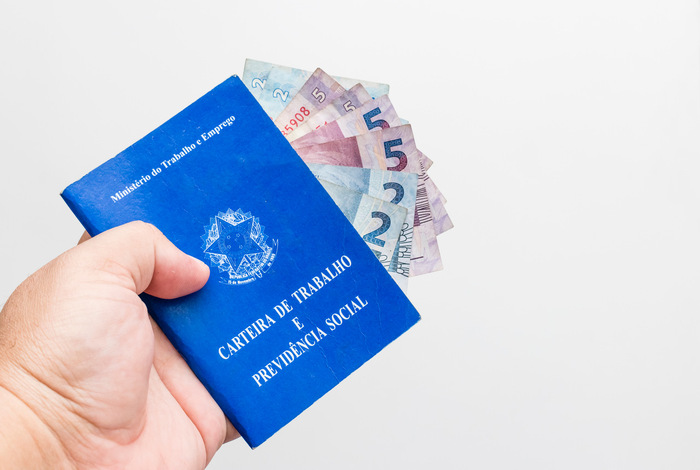O PIS Pasep 2024 and the salary bonus of the workers who were active in 2022. O payment It is aimed, respectively, at professionals from private companies and public servants.
Adverts
With the increase in the minimum wage, PIS/Pasep was readjusted to the value of R$ 1,412. In this way, the payment of the salary bonus varies between R$ 117 to R$ 1,412, according to the number of months worked during the base year 2022.
The payment of salary bonus due to workers in private companies, which are part of the Social Integration Program – PIS, will be carried out by Caixa and public administration workers, who are part of the Salary Allowance Public Servant Assets Training Program – PASEP, by Banco do Brasil.
O payment of PIS 2024 refers to the financial year 2022, that is, anyone who worked last year will not receive the benefit. The two-year gap is due to the delay in the benefit calendar due to the Covid-19 pandemic. Those who worked in 2023 will receive it the next year, that is, 2025.
PIS payment calendar in 2024
The Council of the Workers' Support Fund (Codefat) approved the payment schedule for the 2024 salary bonus. It is estimated that around 24.5 million workers will receive the salary bonus, totaling R$ 23.9 billion.
O payment of both PIS and PASEP will be according to the anniversary date of the beneficiary with payment starting on February 15th for those born in January and continues until August 15th for those born in December.
As in other years, the Council defined that the payment of the salary bonus due to workers in private companies, which are part of the Social Integration Program – PIS, will be carried out by Caixa and public administration workers, who are part of the Salary Allowance Public Servant Assets Training Program – PASEP, by Banco do Brasil.
Caixa is the paying agent for the bonus. See the calendar below:
| Born in | Receive from | They receive up to |
| January | 15/02/2024 | December 27, 2024 |
| February | 15/03/2024 | December 27, 2024 |
| March | 15/04/2024 | December 27, 2024 |
| April | 15/04/2024 | December 27, 2024 |
| May | 15/05/2024 | December 27, 2024 |
| June | 15/05/2024 | December 27, 2024 |
| July | 17/06/2024 | December 27, 2024 |
| August | 17/06/2024 | December 27, 2024 |
| September | 15/07/2024 | December 27, 2024 |
| October | 15/07/2024 | December 27, 2024 |
| November | 15/08/2024 | December 27, 2024 |
| December | 15/08/2024 | December 27, 2024 |
How to receive PIS?
Workers who have a checking or savings account with Caixa will receive credit in their bank account. The other beneficiaries will receive the amounts through Digital Social Savings, automatically opened by Caixa, also according to the payment schedule
Digital Social Savings transactions are carried out using the Caixa Tem application, which allows you to pay bills, make transfers, pay at the machine and make purchases with a virtual debit card.
If it is not possible to open the digital account, withdrawals can be made using the Social Card and password at self-service terminals, lottery units, CAIXA Aqui correspondents or at branches.
How do I know if I am entitled to the salary bonus?
To the Information about workers who are or are not entitled to the salary bonus can be found in the digital work card or on the gov.br portal. Workers entitled to the bonus will be able to check information on the amount, date and bank of receipt from the day February 5, 2024.
Who is entitled to the salary bonus?
The worker who meets the eligibility criteria for access to the Salary Allowance, which are described in art. 9th of Law 7998/1990, namely:
- be registered with the PIS/PASEP program or the CNIS (date of first employment) for at least five years;
- have worked for employers that contribute to the Social Integration Program (PIS) or to the Public Servant Assets Training Program (PASEP)
- have received up to 2 (two) average minimum wages of monthly remuneration during the period worked.
- have carried out paid work for at least 30 days, whether consecutive or not, in the base year considered for calculation;
- have your data correctly informed by the employer (Legal Entity/Government) in the Annual Social Information List (RAIS) or in the eSocial of the base year considered for calculation.
